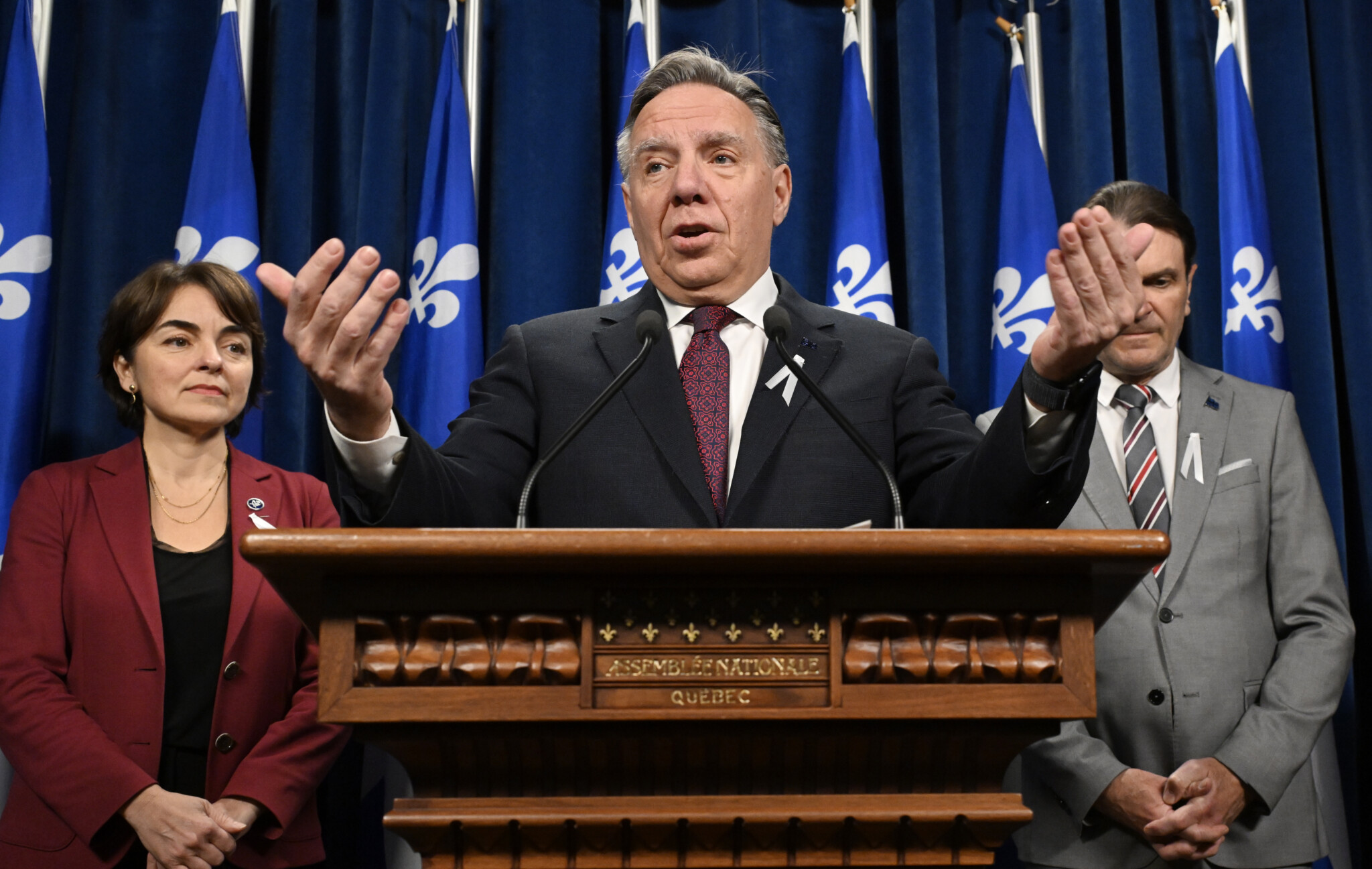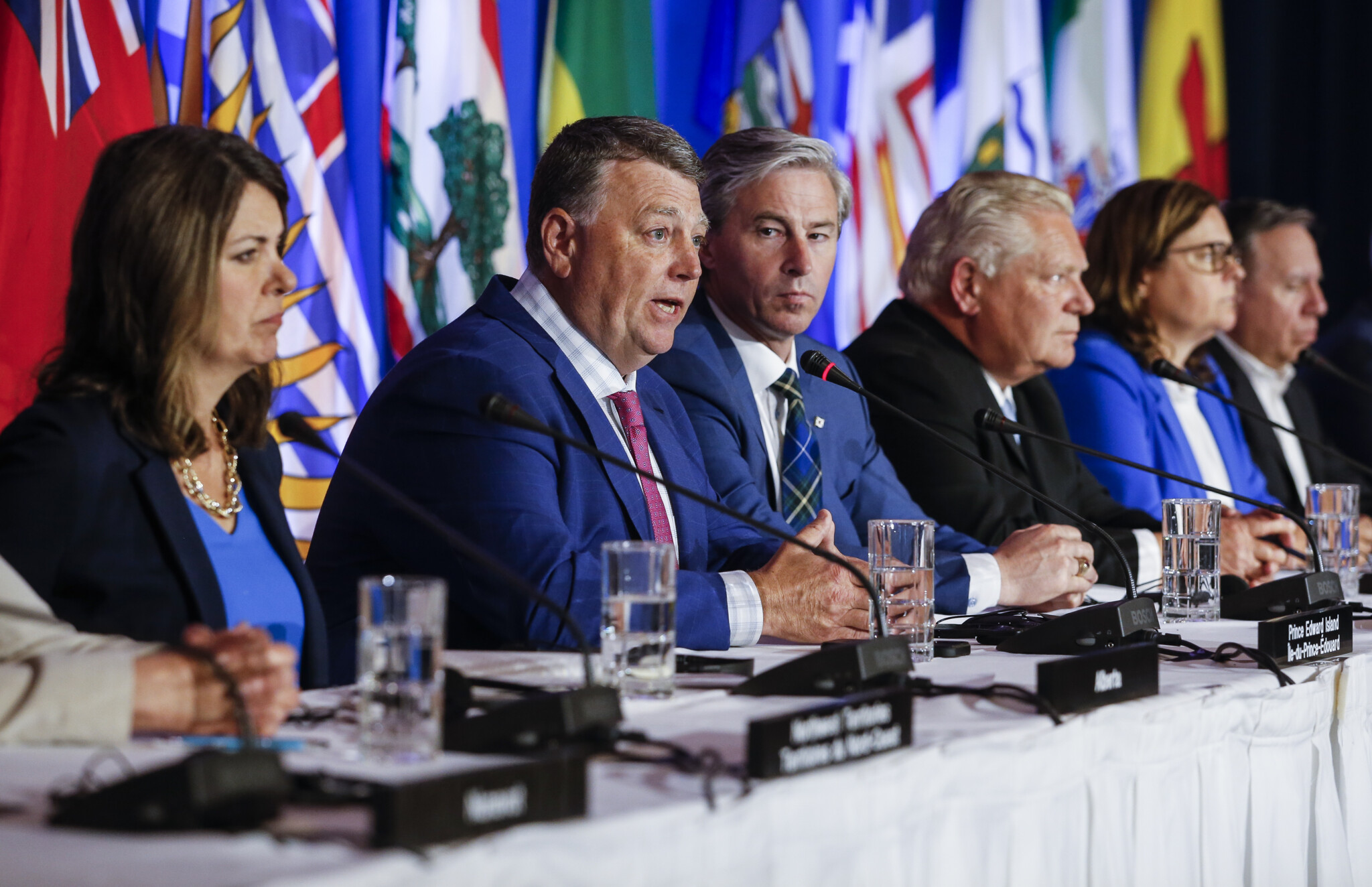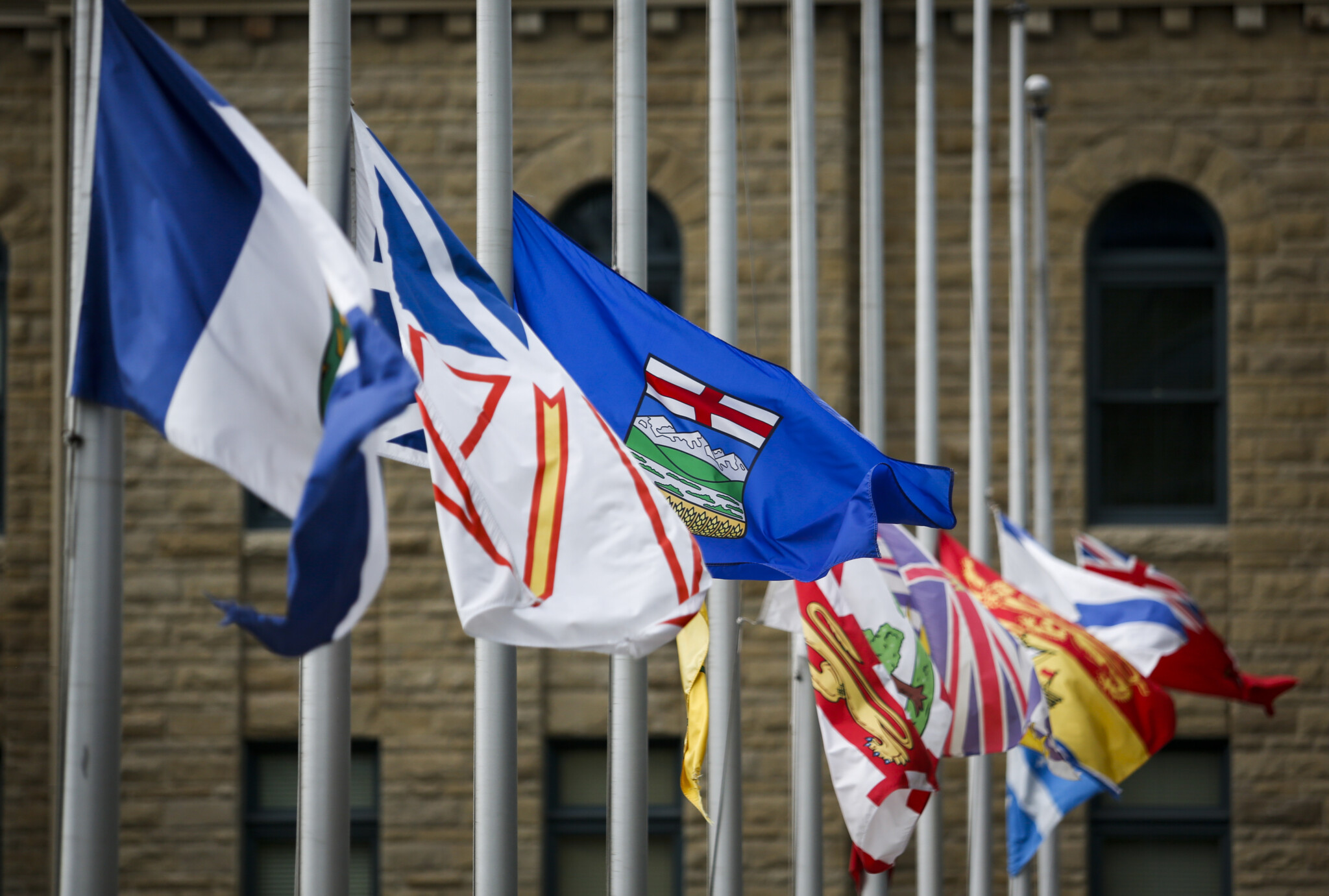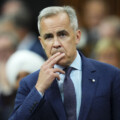The federal government has grown too large and meddlesome. With so many premiers clamouring for more autonomy, Ottawa should engage the provinces in a historic round of devolution.
The reason for the brewing fight over fiscal federalism is that the imbalance between the constitutional limits of the federal government and the broad array of provincial services it is involved in is unprecedented—and growing. Areas of provincial or shared jurisdiction almost certainly exceeded 50 percent of federal operations even before the recent announcements of dental, pharmacare, and school lunch programs.
Federal tentacles reaching into provincial affairs is a major reason why, over the last nine years, the federal employee ranks have unsustainably grown 43 percent despite our population only growing 15 percent.
Every political leader should have a plan to get the federal bureaucracy back over its skis, particularly anyone seeking to become the next prime minister.
In the last year, most provincial governments have called for wholesale changes to programs like equalization, or taken the feds to court for policy overreach, or at least demanded in general terms that Ottawa back away from provincial jurisdiction.
Given the overall cost and inefficiencies besetting our bureaucracy, a new government should fully take up the provinces’ requests. The time is ripe for a deep rebalancing of the federation.
Quebec’s recent ‘Fair Deal’ report
Quebec’s government summoned a panel to make recommendations on how to fight federal overreach and enhance its autonomy. Its report came out at the end of November and calls for many changes, but recommendations 14,15, 17, and 19 are proposals attacking the federal spending power—which every province should support.
The second of these is to seek a constitutional amendment granting Quebec a right to opt out of any federal program with full compensation. This is unlikely to pass, but other provinces joining the demand would reinforce the principle that the federal government should not be creating programs in provincial jurisdiction just because it has the tax room (or more precisely the debt room) to do it.
The French language report cites an entirely germane Pierre Trudeau quote which can be translated as:
“If a government has such an overabundance of revenues that it undertakes to ensure the part of the common good that is not within its jurisdiction, the presumption is created that such a government has taken more than its share of its taxable capacity.”
The other three recommendations we will focus on do not need constitutional change—in fact, they press the federal government simply to respect the Constitution and cede this excess tax room to the provinces to empower them to meet their obligations.
Recommendation 14 is a court challenge of the constitutionality of federal initiatives stemming from the federal spending power, with the national dental plan as the suggested test case.
Recommendations 15 and 17 are for the provinces to keep the GST as a replacement for the Canada Health Transfer (CHT), and for the feds to back out of provincial jurisdiction across the board while downloading additional tax room to match this additional responsibility.

Quebec Premier Francois Legault speaks at a news conference, November 26, 2024 Quebec City. Jacques Boissinot/The Canadian Press.
Fiscal Fairness for the Federation Summit
The main problem with sending most of our taxes to Ottawa when most expenses are provincial is that the government accountable for the delivery is not the one accountable for the taxation. To remedy this, a new government should call a Fiscal Fairness for the Federation Summit with all the provinces to rebalance the federation.
Everything that is primarily provincial jurisdiction would be on Ottawa’s list of things that provinces should be entirely responsible for. For these items, the summit would mostly deliberate upon an outline for phases of devolution, with occasional thought to maintaining a federal coordinating role.
This will be contentious enough, but the real fight will be over money. It doesn’t have to be.
We recently explained in this Hub column why it matters that taxpayers send roughly twice as much in taxes to Ottawa as to their province. This imbalance in tax power generates an imbalance in policy power. If we agree that provinces should be fully responsible for a considerably larger scope of policy delivery, then provinces need a proportionately larger share of the tax power—or “tax room”—to pay for it.
Without autonomy of funding, provinces will not have autonomy of delivery.
This is why we have endorsed the GST-CHT swap in the past: it trades responsibility for a shift in tax room. The provinces are on their own for a massive cost, but they are empowered to self-fund it by permanently taking over GST. After the GST is traded, though, any significant additional tax room shifts mean federal income and corporate tax points move to the provincial tax rolls.
This summit might have the feel of a constitutional convention, but it would be more of a constitutional responsibilities and taxation clarification convention. Provinces who had a willing government in Ottawa offering to trade provincial policy autonomy for federal tax room would have to think hard about which services they could govern or deliver better independently.Infrastructure, child care, dental care, post-secondary, housing, economic development, niche health programs, and even industry/climate policy—these would be the types of candidates up for devolution.
Once the scope changes are agreed upon, accountants would measure how many federal dollars currently go to the grants and services Ottawa is ceding to the provinces. That revenue would be cut from federal tax rates.
The provinces would then add the equivalent to their tax rates. By and large, there would be little or no change for taxpayers, other than that their dollars would now be going to the order of government actually responsible for the service they are paying for. More social service dollars should get to the front lines given the feds no longer need to be fed by them.
Another benefit: the long-running Canadian game of premiers pointing to Ottawa’s purse strings as the excuse for poor provincial services would also be over.

Premiers speak to media during the closing news conference at the Council of the Federation in Winnipeg, July 12, 2023. John Woods/The Canadian Press.
Equalizing the differences
Another problem with our current system (which some seee as a benefit) is that Ottawa collecting and then redistributing tax funds serves as a massive hidden wealth re-distribution mechanism.
Tax points are worth more in provinces with higher incomes.
For genuinely federal matters, wealthier regions should of course pay proportionally more through their taxes. When the national government gets into provincial jurisdiction, however, it means hidden equalization that quietly grows with every new program.
When Ottawa initially launched social programs in the 1950s, it recognized that tax dollars for provincial functions should remain in the province from which they were derived.
This derivation principle guided the initial programs where provinces agreed to let the federal government expand its tax power further in exchange for grants to fund social services. When some provinces complained that their per capita amounts were lower, equalization was born.
While Fairness Alberta has published considerable analysis (including here in The Hub) showing the flaws of the current equalization formula, if the federal government gave meaningful tax room to provinces, a strong but fair equalization program would be warranted.
Quebec’s report calls for equalization reform—and a concomitant reform to the fiscal stabilization program (which is essentially a short-term equalization plan for provinces that face a sudden downturn in revenues). Having these two programs transparently and fairly ensuring all Canadians have reasonably comparable access to social services would be far superior to the enormous patchwork of conditions and redistribution Ottawa quietly engages in today.
Conclusion
Amputating many of the Ottawa octopus’ tentacles would require courage and an eye to the long-term health of the federation, but it would restore that creature to the size outlined by our Constitution.
By granting the provinces their legitimate wish to respect constitutional boundaries, a federal government could drastically reduce its taxes and refocus its assets on its core responsibilities. This would serve to improve the service level across federal departments.
A leader who in good faith sought to narrow Ottawa’s focus by empowering the provinces with policy and taxation autonomy would truly reshape Canada for the better.










